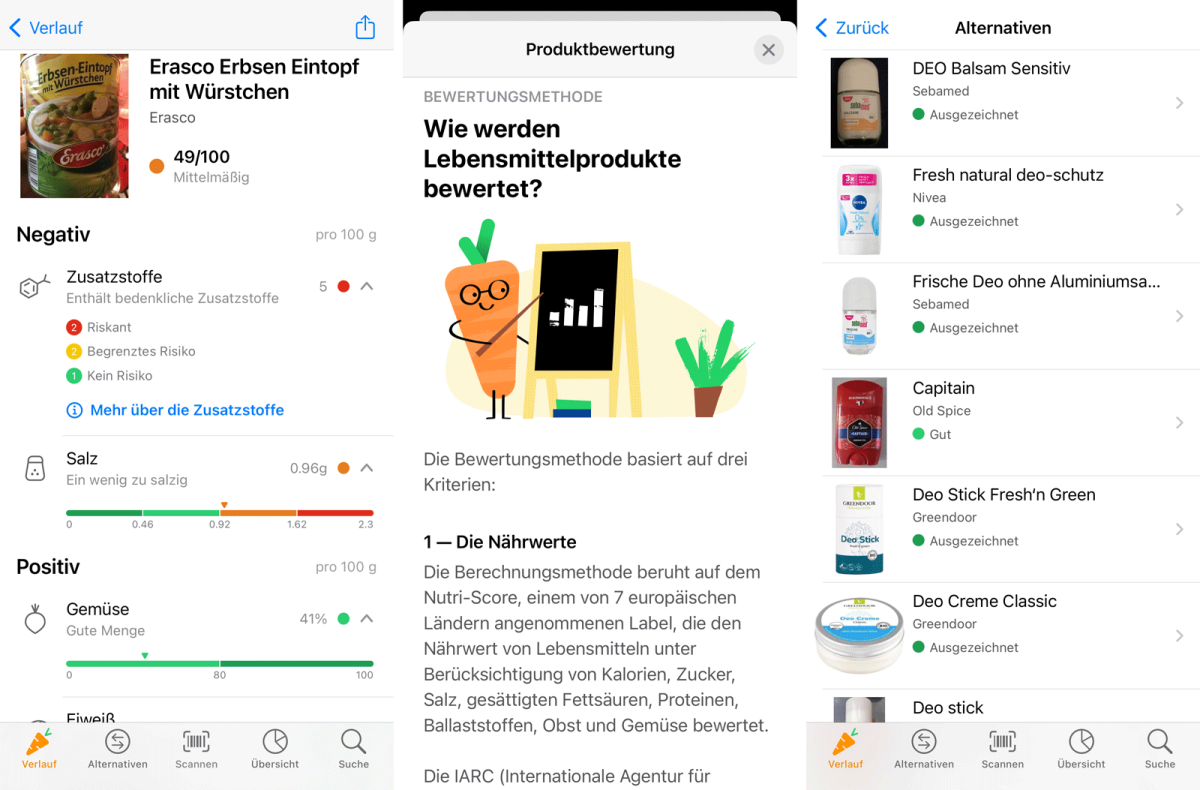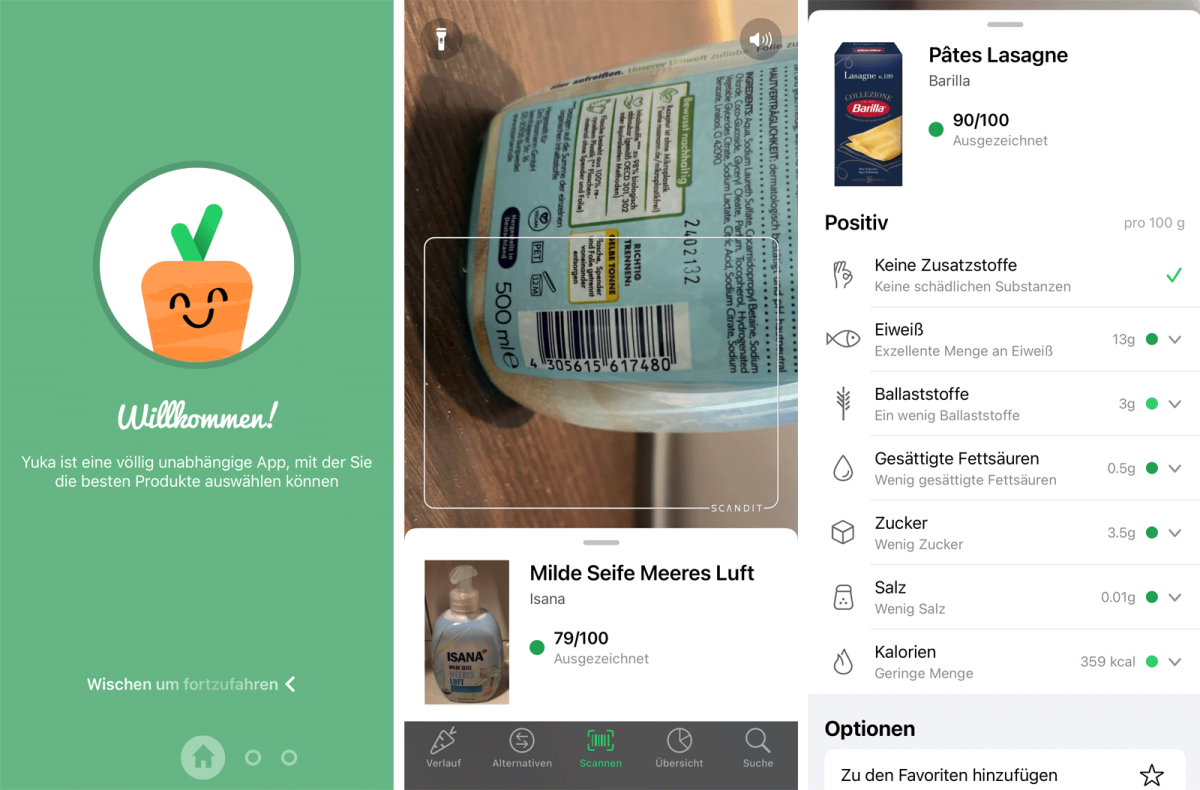Data security in the green area
Yuka According to the provider, it is an ad-free and provider-independent app, funded exclusively through donations. Additionally, the small company sells paid offers related to healthy eating in some countries, but these are unlikely to be of any importance to German-speaking users. According to the charity claim, you can also find on Terms of use It is Data protection information no indication of the risk of further processing of personal data for advertising purposes. What deserves criticism, however, is that these documents could not be found within the application, but only on the home page of the Yuka SAS provider (difficult). Registration to use the application is mandatory and possible via email. The same will also be confirmed by email. No personal information is required other than a self-selected username. Yuka Like all mobile product scanners, it requires access to the smartphone’s camera. Additionally, the app does not require additional approvals. With a good 200 MB (iOS version 4.37) required Yuka There is a comparatively large amount of storage space, but data consumption in transit is low. The background is that the application stores almost all the necessary data locally on the smartphone, so that products in supermarkets and drugstores can be scanned even without a mobile network or WiFi. However, this functionality and additional information about the scanned items are only available in the premium version, which is available for a self-selected donation of between 10 and 20 euros per year. But also in the free version Yukas The most important functions can be used with almost no compromises.
Compare foods from A to Z
The added value of an application like Yuka depends on the quality of the database, which contains information about various retail food products and drugstore items. In our random test with 100 products from well-known manufacturers, as well as own brands from supermarket chains and drugstores, the success rate was a good value above 80%. Each registered product initially receives a general rating ranging from “bad” to “mediocre”, “good” and “excellent”. This classification is based on several factors with different weights. In the case of food, this includes, for example, the fat, protein and carbohydrate content and the additives they contain. There is still a qualitative differentiation here, for example, between complex carbohydrates (fiber) and simple carbohydrates (sugar), saturated and unsaturated fatty acids. Product analyzes follow scientific studies and guidelines recognized in the EU. What’s so complicated about reading (and writing) is presented here Yuka in the form of color-coded bars that clearly communicate to users inexperienced in nutritional matters what is worth consuming and what is not.
…and drugstore items too
When it comes to personal hygiene products, cosmetics and other products from drugstores, perfumeries and pharmacies, the focus is on more or less risky ingredients: here, special attention is paid to fragrances, softeners, dyes and other components of deodorants, creams, Shampoos and comparable products that can cause allergies are considered polluting or harmful to health. Recommended for most foods as well as drugstore items with mediocre or low scores Yuka better rated alternative products. This recommendation function works surprisingly well, as long as it’s not ready-made meals with a very individual list of ingredients. So recommend Yuka, instead of pea stew with sausage, it is better to eat Asian noodle pot or fish dish from another manufacturer. This may not be to everyone’s taste, but it’s forgivable given the very accurate recommendation algorithm for less specific products like dairy, pasta, soft drinks, juices, oils, and seasonings. Favorite products and alternatives can also be marked and saved as favorites. Products that are not in the database can be registered by providing less information about the manufacturer and item name. She will take care of the rest Yuka, after taking a photo of the ingredients or ingredients listed on the product. These are checked by the software and published in the application after qualitative evaluation. According to the app’s note, this can take up to 24 hours, but in our test the product was added to the database after just 45 minutes.

Conclusion
With every touch of your finger you can feel how many years of knowledge and meticulously researched data have gone into this Yuka : Every function seems well thought out and all content is presented with the highest possible added value in mind. The immensely popular app is also in very good shape when it comes to consumer protection aspects. Health-conscious consumers can risk a download without worrying.


